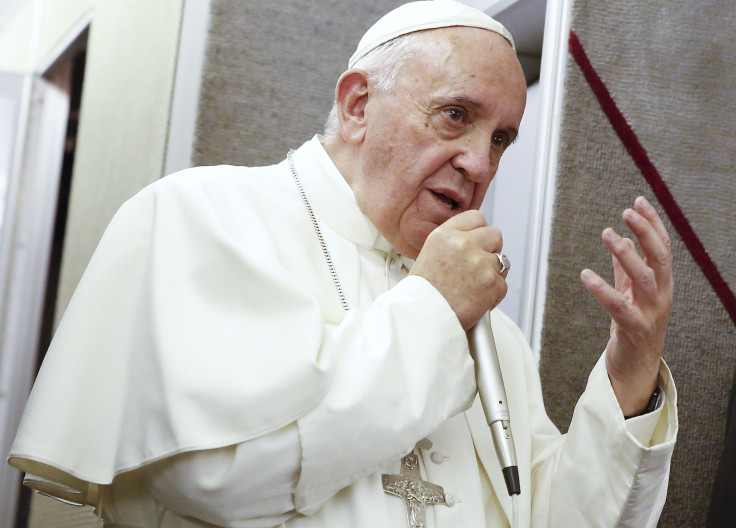Pope Francis' Kim Davis Encounter Exaggerated? Vatican Denies Papal Support Of Kentucky Clerk's Same-Sex Marriage Position

Pope Francis may not be as sneaky and homophobic as some lesbian, gay, bisexual and transgender voices said he was after his U.S. encounter with Kim Davis was confirmed by the Vatican this week. Contrary to claims by an attorney for Davis, the Rowan County, Kentucky, court clerk jailed last month for denying same-sex marriage licenses to local couples, Francis did not offer his support of her position during their brief encounter in Washington, D.C., last week.
“The pope did not enter into the details of the situation of Mrs. Davis, and his meeting with her should not be considered a form of support of her position in all of its particular and complex aspects,” read a statement released Friday by Vatican spokesman Federico Lombardi. “Pope Francis met with several dozen persons who had been invited by the Nunciature to greet him as he prepared to leave Washington for New York City,” the statement said, according to the New York Times.
Lombardi added that the only real audience the pope granted at the Vatican embassy in Washington was with a former student of his and that student’s family. The Vatican, however, did not deny a claim by Davis attorney Mathew Staver that Francis told the embattled Kentucky clerk to “stay strong.”
Davis’ case became a lightning rod in a nationwide debate about religious liberty in the United States, in the wake of the Supreme Court decision validating same-sex marriage rights last June. After the Vatican confirmed her meeting on Thursday, LGBT activists blasted Francis for his seeming betrayal of a progressive stance on social issues that the church has historically been rigid about.
Francis did address religious liberty during his six-day visit to the U.S., which included stops in Washington, New York City and Philadelphia. He has suggested that government employees should enjoy the "human right" to refuse their duties on moral grounds. "Conscientious objection must enter into every juridical structure because it is a right, a human right. Otherwise we would end up in a situation where we select what is a right, saying, 'this right has merit, this one does not'," the pope said, according to a Reuters translation.
© Copyright IBTimes 2025. All rights reserved.






















